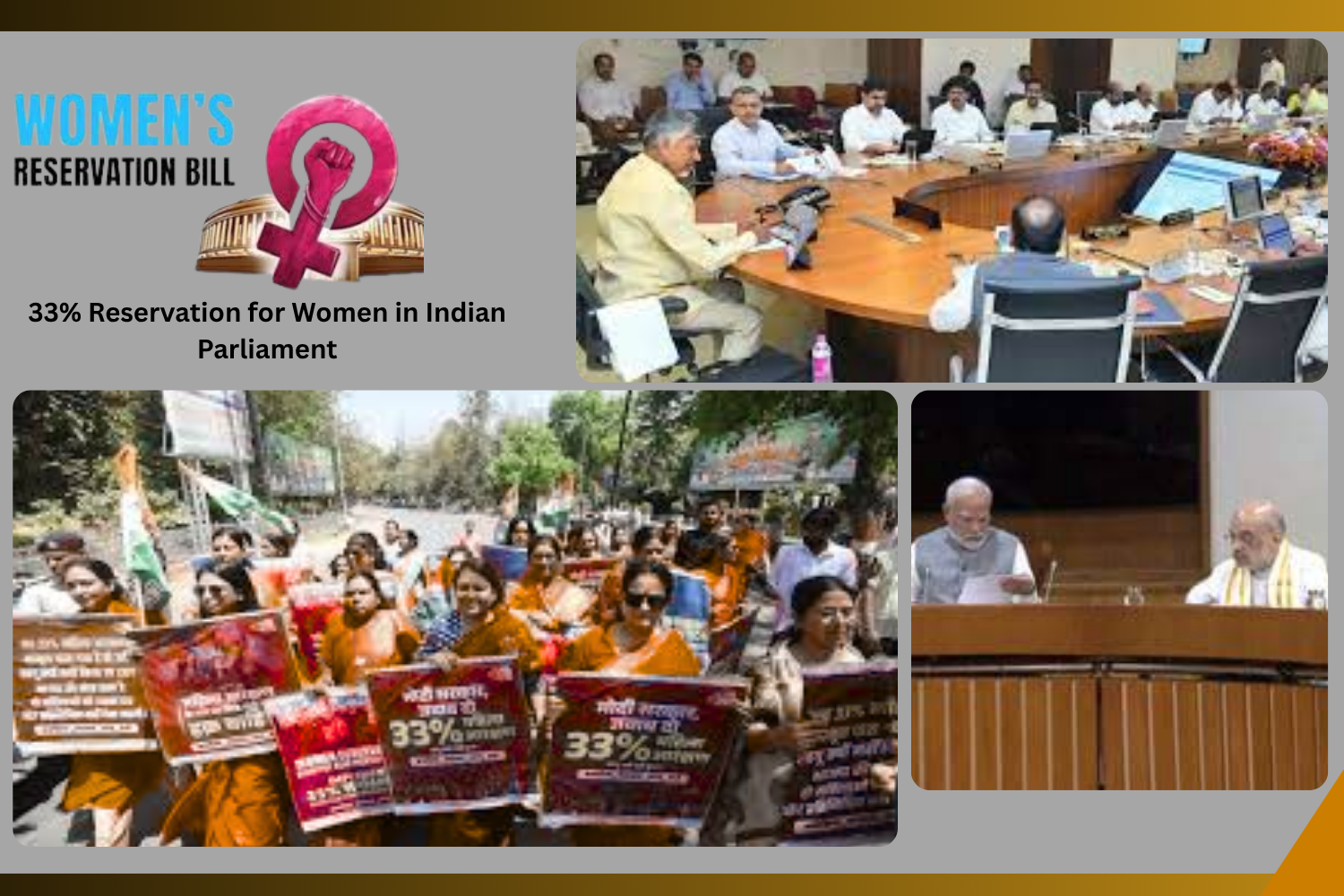33% Reservation for Women in Indian Parliament: Change Begins in 2029
Ankita
. 3 min read
The long-awaited Women's Reservation Bill has finally become law in India, promising to reshape the political landscape by reserving one-third of seats in Parliament and state assemblies for women. However, its implementation is not immediate. The quota will come into force only after the 2026 census and subsequent delimitation, making the 2029 Lok Sabha elections the earliest possible point of execution. Here's a detailed look at what this means for Indian democracy.

What Is the Women’s Reservation Bill?
Officially titled the Constitution (Amendment) Act, 2023, the bill mandates 33% reservation for women in the Lok Sabha (the Lower House of Parliament) and all state legislative assemblies. It is officially titled the Constitution (One Hundred and Sixth Amendment) Act, 2023, also popularly called the Nari Shakti Vandan Adhiniyam. The reservation applies to both general and reserved (SC/ST) categories and aims to promote gender equality and political empowerment of women in India, where they are significantly underrepresented.
What the Law Does
In September 2023, both Houses of Parliament approved the 106th Amendment to the Constitution, which requires:
Women are granted a 33% reservation in the State Legislative Assemblies and the Lok Sabha, the lower house.
SC/ST quotas that include reservations.
After it is put into place, the reservation will be in place for 15 years.
This legislation represents a significant turning point in India's progress toward gender equality and seeks to empower women politically by guaranteeing increased participation in governance and lawmaking.
How Was the Bill Passed?
The bill was introduced in a special session of Parliament in September 2023 and passed with near-unanimous support:
Lok Sabha: 454 in favor, 2 against
Rajya Sabha: 214 in favor, 0 againstIt received the President’s assent on September 28, 2023, and became law the same day.
When will it be implemented?
Despite becoming law, the bill's implementation is conditional on two crucial steps:
Census: The bill mandates the use of data from the first census conducted after 2026.
Delimitation: A redrawing of constituency boundaries based on the census data must follow.
Due to these conditions:
The 2024 Lok Sabha elections will proceed without reservation.
The next general elections in 2029 are the earliest point at which the quota could be applied.
Impact and Significance
Just 14% of MPs in the Lok Sabha are currently female. With this law, women's representation could be tripled, putting India on par with countries like South Africa (45%), Sweden (46%), and Rwanda (61%).
Key expected outcomes:
Greater gender balance in policymaking
More focus on issues like health, education, and women's safety
Increased participation of women in electoral politics
Why This Matters?
India currently has less than 15% women MPs in the Lok Sabha.
With this law, India joins over 100 countries with some form of gender reservation or quota in political systems.
It is expected to boost women’s representation significantly, policy focus on gender-sensitive issues, and long-term social empowerment.
Conclusion
The 33% reservation for women in India’s Parliament marks an important step toward gender-inclusive governance. 2029 is the earliest possible, but not guaranteed, timeline because its implementation is still dependent on census and delimitation procedures, despite being legally passed and widely celebrated.For now, the country closely monitors the progress of preparations, anticipating the day when women will make up one-third of its legislative voices, changing representation and policy for future generations.
FAQ
What is the Women’s Reservation Bill?
What is the official name of the law?
Does the reservation apply to the Rajya Sabha or the Legislative Councils?
What impact will this have on women’s representation?
More Stories from
How did India respond to Donald Trump's 25% tariff penalty on India?
Trade tensions between the United States and India have sharply increased as a result of this recent development. Know how India responds to Donald Trump's 25% tariff penalty on India.
Geoffrey Hinton's AI Warning: The Most Dangerous Invention Ever
AI is both beneficial and dangerous, depending on how it is developed, deployed, and regulated.
Unbelievable Facts about World History that will surprise you
Human history and the natural world are filled with mysteries, marvels, and strange truths that challenge our understanding. In this article, we will explore some unbelievable facts about world history.
Why skill-based hiring is gaining importance over degrees?
Skill-based hiring vs Degree, which matters first? what you can do” matters more than “what degree you hold.”
The Hidden Secret of the Great Pyramid’s exposed
With the development of scientific instruments and technology, each day, discoveries about the world are surprising us





